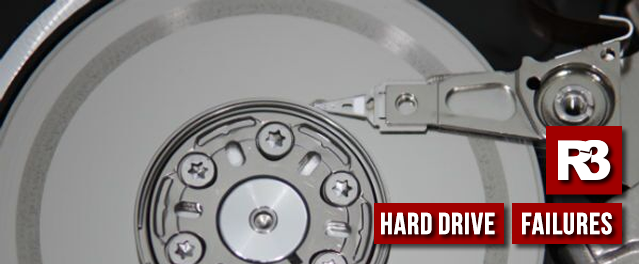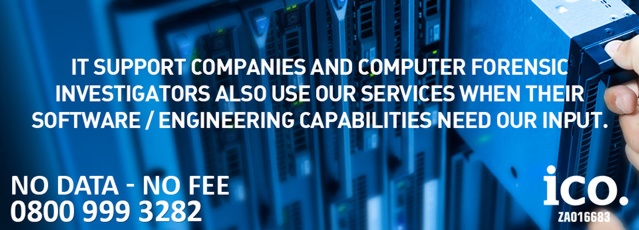
Common Hard Drive Failure Modes
R3 Data Recovery Ltd operate one of the few high capacity data recovery labs in the UK. It is used by home users, students, businesses, corporations and any organization or individual who need help recovering their data.
The Security House lab is geared to achieve recovery of ever increasing capacity of drives at a fixed price. But it is also used as the last port of call for failed storage devices, many declared unrecoverable previously, including SSD Drives, RAID Arrays, Tape Backup and memory sticks.
Our team of engineers are long term industry researchers & leaders, developing new solutions for each generation of drives. The R3 team have the scale to cope with most situations including the sudden influx of dozens of drives from flood affected areas. Each failure is actually unique, the life of the drive, the type of data, environmental factors and user interference all influence the failure and chances of recovery.
Despite what you might find online and the reason for reading this page, in reality hard drives are not designed to fail and not all data recovery labs are the same!
Many drives that come in for recovery have seen a long and productive life, the hundreds of millions of drives in circulation in the UK generates a steady flow of work on a daily basis, in reality our growth is actually in the increasing adoption of SSD Drives which have their own problems and failure modes and higher failure rates per hundred drives.
It is not unusual for clients to come to us with hard disk drives 10-15 years old, and recently we have had drives from the late 80’s and very early 90’s. Equally we have drives come in for recovery which are literally hours into their first use, but it is why they need recovery that is key and can be a combination of the following.
- Accidents: Dropped or Knocked. Mostly external drives and laptops.
- Power Interference: Mostly over voltage from wrong power supplies, failing UPS or batteries, local substation outages and lightning strikes.
- Liquid damage: From flooding of a data center, factory, office or home. To spillage of a glass of wine or coffee on a laptop or even dropped into the sea, swimming pool or washing machine.
- Harmonics: Vibrations at a frequency that the hard drive picks up and become amplified, especially when there are multiple drives in a computer, Server Rack, NAS, DAS or SAN – see Also Gas Drop – Air Shock..
- Temperature: Hot weather failing air-conditioning, poor airflow can all contribute to overheating or direct heat from a fire.
Our team has helped thousands of clients recover data from all these scenarios, so please contact us today for a free assessment or request a free online quote using the form to the right.

